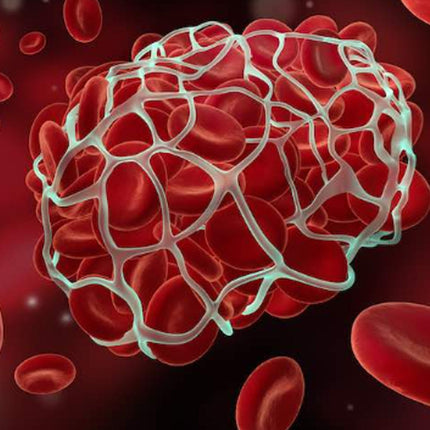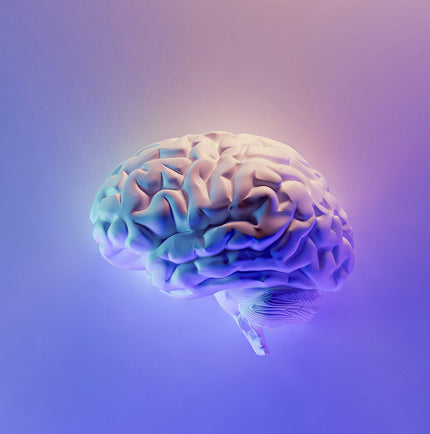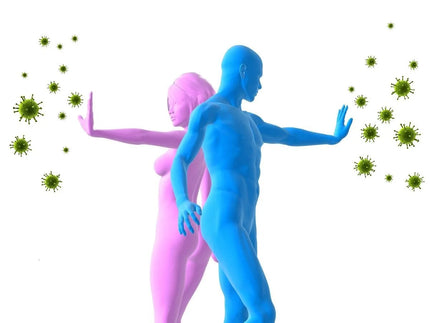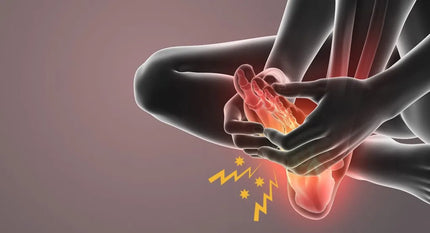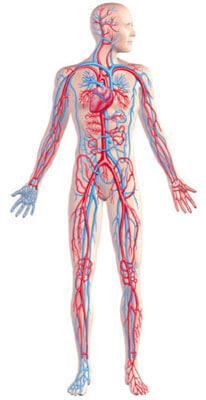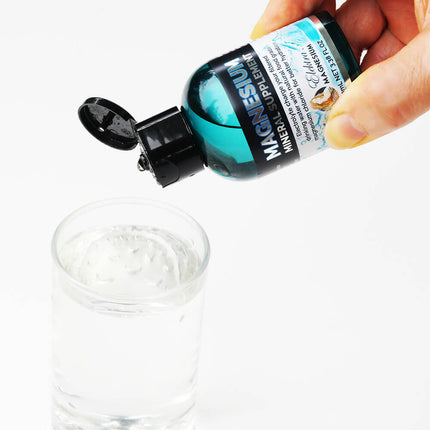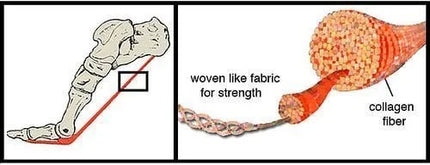Tax included and shipping calculated at checkout
What if something as simple as extra magnesium in your diet could help you and your children cope better with stress, not be plagued by anxiety and depression, and become more resilient?
Parenting is hard enough under normal circumstances where there are two parents supporting each other and generally living a healthy lifestyle. It challenges us in every way and on every level as we learn to give up our privacy and leisure time to care for new humans. Feelings of anxiety and stress from time to time are understandable.
However, these pressures and stresses can mount up exponentially when one parent is not participating and if there are exceptional financial or work pressures or nutritional deficiencies – particularly magnesium. All of these stressors can exacerbate health problems such as anxiety and depression.
How bad is the problem?
Mental disorders now account globally as the leading burden of disability, with depression forming a large part of this group. According to the latest Australian household survey, the Australian Child and Adolescent Survey of Mental Health and Wellbeing published in 2015, almost 1 in 7 (13.9%) of children and adolescents aged 4–17 years were assessed as having mental health disorders in the previous 12 months (586,000 based on the estimated 2016 population).
Attention Deficit Hyperactivity Disorder (ADHD) - 7.4% (312,000).
Anxiety disorders - 6.9% (291,000)
Major Depressive disorder - 2.8% (118,000)
Conduct disorder - 2.1% (89,000).

To put it in perspective, in an average class size of 22 children, three of them will experience some kind of mental health issue. If you are a teacher you will understand the nature of disruptions to teaching that can arise. It’s not just a problem for the families having to deal with seemingly insurmountable stress, anxiety and health problems, but the burden is transferred throughout the whole community and to the wider population as our taxes have to pay for ever increasing support services.
To make matters worse, many of these children grow into adults unable to be productive. We therefore lose twice: Firstly, on the cost of mounting disability supports for mental health, and secondly, on the loss of potential productivity of those people.
“$9 billion was spent on mental health in 2015–16… 4 million people were estimated to have experienced a common mental disorder in 2015.” (Australian Institute of Health and Welfare)
“Mental illnesses are the largest single cause of disability in Australia, accounting for 24% of the burden of non-fatal disease. Measured by total years of life lived with disability. This has a major impact on youth and people in their prime adult working years.” (Australian Dept Health)

Emotional cost to parents and carers of anxiety and depression
Of course, the extreme level of emotional anguish that parents and care givers experience when trying to cope and manage with a child suffering from mental health issues is the unquantifiable damage. Mind, body and soul are all affected and under siege when your kids are suffering and you feel helpless to solve the problem.
Not only is the child going from bad to worse with mounting stress, mis-behaviours and social anxiety, but the feedback loop of parental stress impacts further on the child. The deterioration of the child then causes further anxiety and stress for the parents – and so goes the revolving door of family dynamics until there is an emotional explosion and nervous breakdown (meltdown) of some kind. Eventually depression sets in as the energy runs out to keep trying.
Prevalence of self harm in children and adolescents
Among 14-15 year-olds, one in ten reported that they had self-harmed in the previous 12 months. Girls appeared to be at greater risk than boys of both self-harm and suicidal behaviour. One in four girls had had thoughts about self-harming, and 15% had engaged in some form of self-harm. Among boys, 8% had thought about self-harm, and 4% had done it. Of all those who had attempted suicide (5%), two thirds had previously self-harmed.
All of these symptoms indicate a dangerous downward trajectory.
Chronic stress, anxiety and blowing off steam
Different people learn to deal with mounting stress in different ways. These ways include deflecting the pain and anguish to other kinds of pain that distract from the main issues. An example of this is silent self-harm in private spaces. It is a diversion to release some steam.
Other people who can’t suppress or divert their stress let it build up until it eventually cascades into a meltdown. Meltdowns or fits allow for the release of pressures and pent up energies (a temporary respite), but the intense adrenalin-cortisol flooding the system cause an uptick of acidic and destructive by-products such as Reactive Oxygen Species (ROS) that cause free radical damage to tissue cells. Constant stress priming causes release of pro-inflammatory cytokines such as Tumor Necrosis Factor, Interleukin 6 and others. This eventually leads to release of phagocytes in an inflammatory response. [1]
If the brain develops inflammation – even at a low level – this inflammation can severely affect how the brain processes information and decodes the meaning of sensory input and communication. It can easily misinterpret the environment or other people. The default position when we don’t understand what is going on, is primal fear… and of course more stress. Neurons can be destroyed without being replaced. This can result in brain injury, distorted thinking, delirium and depression of IQ.
Others find an outlet in working out at the gym or sports, which is a far better alternative to blowing off that steam – as long as you have plenty of magnesium to support you. If magnesium levels are low, intense physical exertion can actually be harmful as it more severely depletes magnesium.[2]
Magnesium relieves stress and helps to calm the body by relaxing muscles and dampening down the release of adrenaline and cortisol. During rest and relaxation the body can also detox and repair. Magnesium calms down inflammation. It directly modulates the priming of phagocytes for inflammation by its calcium antagonism, and indirectly by its antioxidant effects on the immune-inflammatory processes. Several studies have revealed an inverse relationship between cellular magnesium concentration (deficiency) and these potent inflammatory cytokines. As magnesium drops, the level of pro-inflammatory cytokines increases, and vice versa.
“A prolonged high serum concentration of tumor necrosis factor results in prolonged inflammation and effective damage locally and systemically. Systemic diseases such as systemic lupus erythematosus and local organ diseases, including psoriasis and osteoarthritis are all associated with dysregulation (increased concentrations) of this cytokine.” [1]
The lower the magnesium levels get, the more prone we become to acute stress responses with the smallest of challenges - and the more we become subject to chronic inflammation, a kind of slow cellular burn that consumes the body’s resources. The more stress and anxiety, the more we lose magnesium. The lower the magnesium, the more stress takes us over. This is a perpetuating feedback loop that can lead to serious damage over time if not corrected.
Co-morbid health conditions
PSYCHIATRIC CO-MORBIDITIES :
According to the national survey, of those (nearly 14% of children and adolescents) with mental health disorders, almost one third (30.0%) had 2 or more mental disorders at some time in the previous 12 months.
A third (31%) of adults in receipt of the Disability Support Pension have a primary medical psychological/psychiatric condition, plus other comorbid health conditions. Anxiety and sleep disorders are prevalent all psychiatric disorders. If you can’t sleep properly you keep getting sicker as the body deteriorates into a toxic inflammatory dump and overall anxiety and depression.

According to the Anxiety and Depression Association of America (ADAA) adults with ADHD are also likely to have an anxiety disorder, depression, bipolar disorder, or other comorbid psychiatric disorder.
OTHER DEGENERATIVE CO-MORBIDITIES :
“Over one-quarter (27%) had heart or circulatory conditions and over one-fifth (21%) had diabetes (compared with 16% and 6% respectively in the general population).
The prevalence of Diabetes found in the National Survey of People Living with Psychotic Illness is more than 3 times the rate seen in the general population.
Other comorbidities included Epilepsy (7% compared with 0.8% in the general population) and Severe headaches/migraines (25% compared with 9% in the general population).” (Australian Institute of Health and Welfare)
For those affected by severe illnesses, particularly those with psychotic disorders, average life expectancy is shorter and is second only to Indigenous Australians, due mainly to high levels of untreated comorbid physical illness.
Mental health - body health - revolving door
We should be treating the body as one whole unit because we cannot separate the mind and brain from all the other cells of the body. If there is ill health and disease from low magnesium somewhere in the body - then it's really everywhere in the body.
The revolving door works like this: After many ‘rinse and repeats’, recovery times start to take longer and energy becomes more depleted. Less energy metabolism can lead to binge eating of sugary and processed carbohydrates, excessive alcohol consumption or addiction to opioids and other pain medications. The body seeks more and more stimulants to try and rev up the energy supply because the brain consumes a lot of energy to function. When energy drops too low the brain can go into a kind of ‘safe mode’ of sub-optimal function where it is rationing the energy it does get. Dysfunctions creep in such as migraines, brain fog, memory glitches and illusory fears, anxiety or paranoia.
As magnesium drops lower from excessive stress, there is less control over adrenaline and cortisol release, so that these catecholamines (stress hormones) escalate and chronically flood the system in a fight or flight (sympathetic) mode. We can get stuck in that mode, unable to relax and move back to rest and recover grazing (parasympathetic) mode. The stress hormones prompt glutamine to overstimulate neurons causing rapid and incessant calcium firing. Without enough magnesium to control the calcium and switch off the catecholamine release, we can’t relax. [3]
Constant firing without rest causes free radical damage, killing neurons. Without proper rest and sleep we can’t build new neurons to replace the damaged ones, leading to brain deterioration and degeneration.
Low magnesium by itself can cause release of stress hormones leading to feelings of anxiety and depression
We don’t have to look far to find reasons for our feelings of anxiety and stress. Looking for reasons, people or circumstances that have assaulted us to cause our stress may be way off the mark. The mere issue of magnesium deficiency alone may be the cause of feelings of anxiety and stress hypersensitivity. Another reason is dehydration. So, remember to drink enough mineral water (for electrolyte charge).

Food Grade Elektra Magnesium Chloride for drinking water and bathing.
Magnesium can actually have a blocking effect on the release of adrenal catecholamines, if you have enough magnesium in reserve. [4] Magnesium ions control and regulate the flow of calcium in and out of calcium channels, as these ions are antagonistic. Excess calcium ions trigger release of adrenal catecholamines and further depress magnesium levels. Calcium can become a bully!
Excessive catecholamine release has a dehydrating effect because the resulting push of calcium ions into the calcium channels of the cell results in a depolarisation of the channel and consequent loss of water (and eventually also renal wasting of potassium). [3] The body in a sense panics when cell hydration levels drop too low, resulting in feelings of anxiety. Magnesium however brings the water back into the cell to relax and dampen down the stress hormones, as it pushes the calcium back out to restore resting balance. [5]
A rise in calcium is therefore secondary to a decrease in magnesium [1, 3, 5]: When magnesium goes down, calcium goes up. When calcium goes up, it prompts release of adrenal catecholamines (stress hormones). Magnesium however, in sufficient amount, can control the calcium, which then can block the release of stress hormones.

Both low magnesium and cellular dehydration can cause feelings of anxiety and acute stress. It can even lead to heart arrhythmia and atrial fibrillation if the magnesium gets low enough.
As we tend to get much more calcium for our food supply than magnesium, and many people suffer from renal wastage of magnesium, we are more likely to be magnesium deficient than calcium deficient. The more common danger is actually not getting enough magnesium.
Pain relief
Magnesium has also been found to be an NMDA receptor antagonist, which is helpful when trying to relieve pain.[3] Pain itself is stressful and causes excessive magnesium loss. Another revolving door! “In a double-blind study, patients receiving a preoperative bolus and postoperative infusion of magnesium sulphate had lower morphine requirements, less discomfort and less subjective sleep disturbance than control patients in the first 48 hours after operation.” [3]
Magnesium also relieves migraine headaches because it is a relaxer of smooth muscle cells in our vascular system. When magnesium gets low the vessels can tighten up and cause pain and constriction. Magnesium supports production of nitric oxide [6], which relaxes and expands blood vessels, allowing better blood flow and oxygenation. If your vessels tighten up and you can’t get enough oxygen supply to your extremities or micro-vessels in the brain, this can result in hypoxia (starvation of oxygen). If cells can’t get oxygen, after a period of time they die.
Magnesium is known to increase blood fluidity and normalise blood pressure. It is anti-thrombotic and helps our blood to keep moving where it needs to go. Magnesium is also the greatest support for normal heart rhythm. Without enough magnesium your heart can go into cardiac arrest – usually as a result of severe stress. [5]
Magnesium alleviates ADHD symptoms
Back to Attention Deficit Hyperactivity Disorder, anxiety, impulsivity and hyperactivity in children:

Low magnesium is very common among children with ADHD. Out of 116 children (94 boys and 20 girls) aged 9-12 years with recognized ADHD symptoms, magnesium deficiency was found in 95 per cent of cases. [8]
In a study by a university in Cairo it was found that magnesium supplementation for a few weeks significantly reduced the clinical symptoms of ADHD. [7]
In another study ADHD cases who had low hair magnesium level were found to have highly significant improvement in hyperactivity and impulsivity, as well as significant improvement in inattention, opposition and conceptual level when magnesium was supplemented.[7]

A further study published in 2006 was also able to demonstrate improvement of neuro-behavioural disorders, including hyperactivity attention deficit, with magnesium supplementation. [9]
Burn-out, anxiety, energy depletion and breakdown
The inability to sit still, which is characterised as ADHD, results from excess levels of stress hormones unable to be dampened down because magnesium is deficient. Low magnesium itself causes an increase in release of stress hormones. They make us want to get up and move around constantly. It becomes difficult to focus or concentrate because adrenalin and cortisol are fight-or-flight hormones that restrict our ability to use the calm reasoning part of the brain – the pre-frontal cortex. There is not much time to think reasonably when your body is being flooded with stress hormones. The body becomes primed for flight and fast movement.
After we’ve run out of puff from all that anxiety and fight-or-flight, the body experiences energy crashes. As the brain consumes more energy than any other organ in the body, it starts to slow down and ration reserves. It’s pretty hard to be happy when your energy is depleted because we use a lot of energy to express happiness and enthusiasm. Without enough energy we just want to sleep all the time.
Magnesium to the rescue

WATCH VIDEO: How magnesium affects mental health
Relieve stress and get your energy levels back with magnesium.
Depression is a bit like the flu: It comes about when our resources have been over-spent and we haven’t recovered yet. The brain then puts you in slow motion to conserve what it has left in the tank. Your immune system can also be affected and it is common with depression for you also to experience colds and flu symptoms, as pathogens are opportunists that invade when our defences are down.
Extra magnesium can however help to build up our resources because it is the essential nutrient required by mitochondria to make Adenosine Triphosphate (ATP) – our cellular electrical energy currency.
In a recent open-label, blocked, randomized, cross-over trial with 126 adults, [10] consumption of magnesium chloride (equivalent to 248mg elemental magnesium) for six weeks resulted in a clinically significant net improvement in anxiety and depression symptoms. In fact, effects were observed within two weeks. It works quickly and is well tolerated without the need for close monitoring for toxicity. In other words, it is a safe natural salt that can be added as a daily supplement to increase overall dietary magnesium intake.

Researchers have found that the availability of magnesium also affects gut health and that dietary magnesium deficiency alters gut microbiota and leads to depressive-like behaviour. [11] We get substantial production of vitamin B12 from our beneficial bacteria (which depend on magnesium). B12 contributes to important neurotransmitter production in the gut, which ultimately supplies the brain. Low B12 is also associated with anxiety symptoms.

The best recovery will always be when we are supplying all of the body’s nutritional needs as part of a balanced fresh food diet, drinking plenty of fresh clean water (mineral), avoiding chemicals, sugar and process foods – as well as making sure we get plenty of regular fresh air, sunshine (for vitamin D) and exercise.
The brain needs lots of oxygen being pushed around the cardiovascular system. Your circulation has to move. Your muscles need to be stretched and worked. Avoiding toxic activities like smoking, binge drinking and hanging around people with toxic attitudes, can work wonders to improve health.

A happy life with health and wellness requires mindfulness to carefully select quality foods packed with natural life force, vitamins and minerals. You’ll need to do this for quite a while in order to clean out years of old stored-up sludge and waste. You literally are what you eat. If you put the good stuff in, your body can start the clean-up process!
Oral magnesium tablets and powders are often difficult to digest and absorb properly, so that very little magnesium ends up getting to the interior and inside cells of the body. In the case of severe magnesium deficiency you can give the recovery process a nudge with better results using higher concentrations of magnesium supplementation via: 1) Intravenous injection by a doctor, OR 2) Daily transdermal magnesium application, which can allow more magnesium to pass through the skin compared to the gut wall in the digestive system. This option is also safe and easily tolerated. You can use as much as you like because the body knows how much it needs to absorb from the skin.
Everyone's needs are different and adult magnesium requirements can vary from 300mg to over 1,000mg per day. It depends on diet, age and also how much is lost in the urine. Your body will respond and give you feedback, such as better relaxation and sleep, no more cramps, better immune strength, normalising blood pressure and improvement in energy and wellness, when magnesium levels are being restored.

Daily magnesium cream skin care and muscle massage prevents cramps.

The good news is that our DNA programming knows how to be well and healthy and all it needs is to be supplied with all the right materials to do that job well. After you give the body what it needs all the healing gets done while you are resting. Nature is very clever that way! Be persistent and practice a healthy lifestyle discipline until you develop new good habits. Bit by bit it gets better and better. Perhaps get a buddy to do these things with.
Over time and with practice, living well and healthy becomes the norm and very automatic. In fact, you won’t want to go back to the old bad habits. You’ll run the other way! Optimal wellness makes you burst out with joy and contentedness as the brain recovers and the real you takes over. Creativity bubbles up, your inner coping strength returns, enthusiasm sets in for projects and before you know it, you will be busy building and creating a better world.

This life is a precious gift, but it needs nurturing and love. All life needs love - from your garden plants to pets, as well as us humans! Starting with healthy clean food and environment is the first step to loving ourselves and others. So chill out with magnesium and surrender to Nature’s life force, as it moves through every cell to recharge you.
By Sandy Sanderson, © 2019
REFERENCES:
1. Chandrasekaran, N.C., et al., Effects of magnesium deficiency--more than skin deep. Exp Biol Med (Maywood), 2014. 239(10): p. 1280-91.
2. Seelig, M.S. and A. Rosanoff, The magnesium factor. 2003, New York: Avery.
3. Fawcett, W.J., E.J. Haxby, and D.A. Male, Magnesium: physiology and pharmacology. BJA: British Journal of Anaesthesia, 1999. 83(2): p. 302-320.
4. Pinto, J.E., The blocking effect of magnesium on the secretion of adrenal catecholamines induced by the omission of sodium from the extracellular medium. Horm Metab Res, 1979. 11(6): p. 404-7.
5. Seelig, M.S., Consequences of magnesium deficiency on the enhancement of stress reactions; preventive and therapeutic implications (a review). J Am Coll Nutr, 1994. 13(5): p. 429-46.
6. Howard, A.B., R.W. Alexander, and W.R. Taylor, Effects of magnesium on nitric oxide synthase activity in endothelial cells. Am J Physiol, 1995. 269(3 Pt 1): p. C612-8.
7. El Baza, F., et al., Magnesium supplementation in children with attention deficit hyperactivity disorder. Egyptian Journal of Medical Human Genetics, 2016. 17(1): p. 63-70.
8. Kozielec, T. and B. Starobrat-Hermelin, Assessment of magnesium levels in children with attention deficit hyperactivity disorder (ADHD). Vol. 10. 1997. 143-8.
9. Mousain-Bosc, M., et al., Improvement of neurobehavioral disorders in children supplemented with magnesium-vitamin B6. I. Attention deficit hyperactivity disorders. Vol. 19. 2006. 46-52.
10. Tarleton, E.K., et al., Role of magnesium supplementation in the treatment of depression: A randomized clinical trial. PLoS One, 2017. 12(6): p. e0180067.
11. Winther, G., et al., Dietary magnesium deficiency alters gut microbiota and leads to depressive-like behaviour. Acta Neuropsychiatr, 2015. 27(3): p. 168-76.
RELAX ~ RECHARGE ~ RECOVER
by Sandy Sanderson








